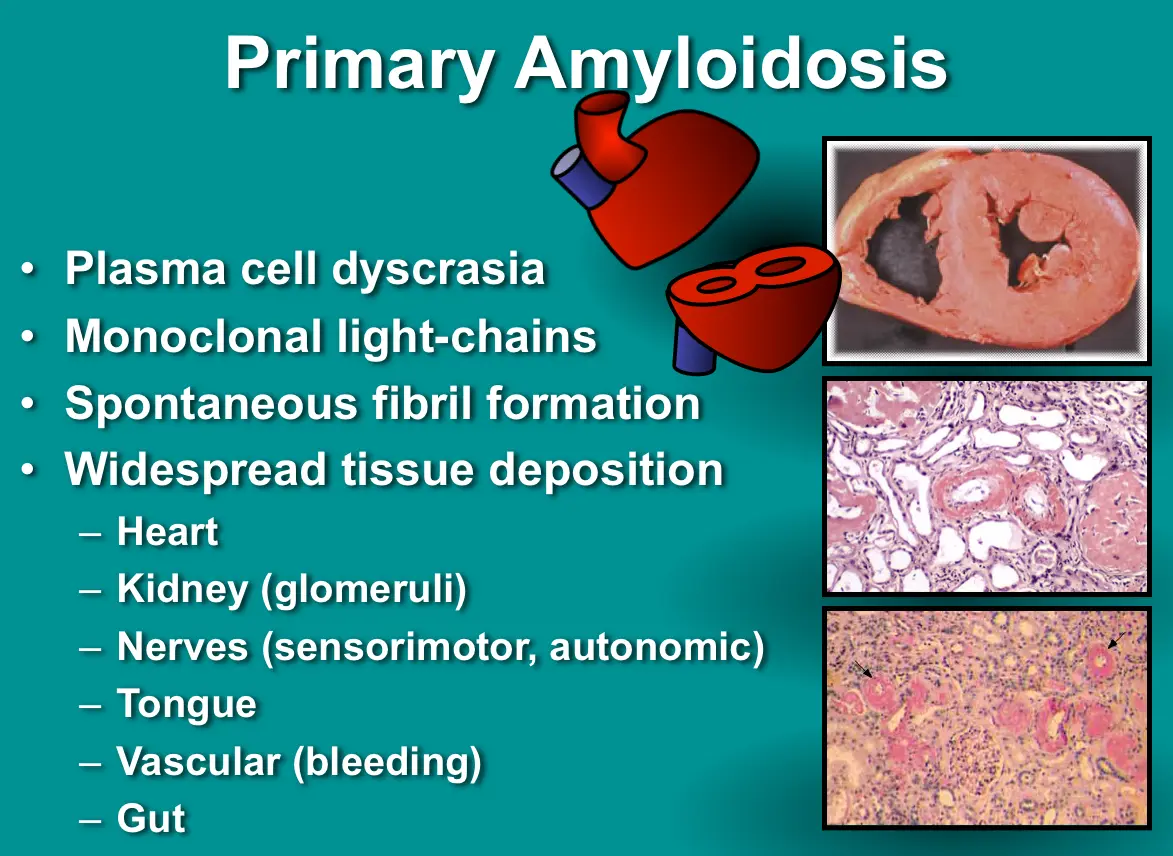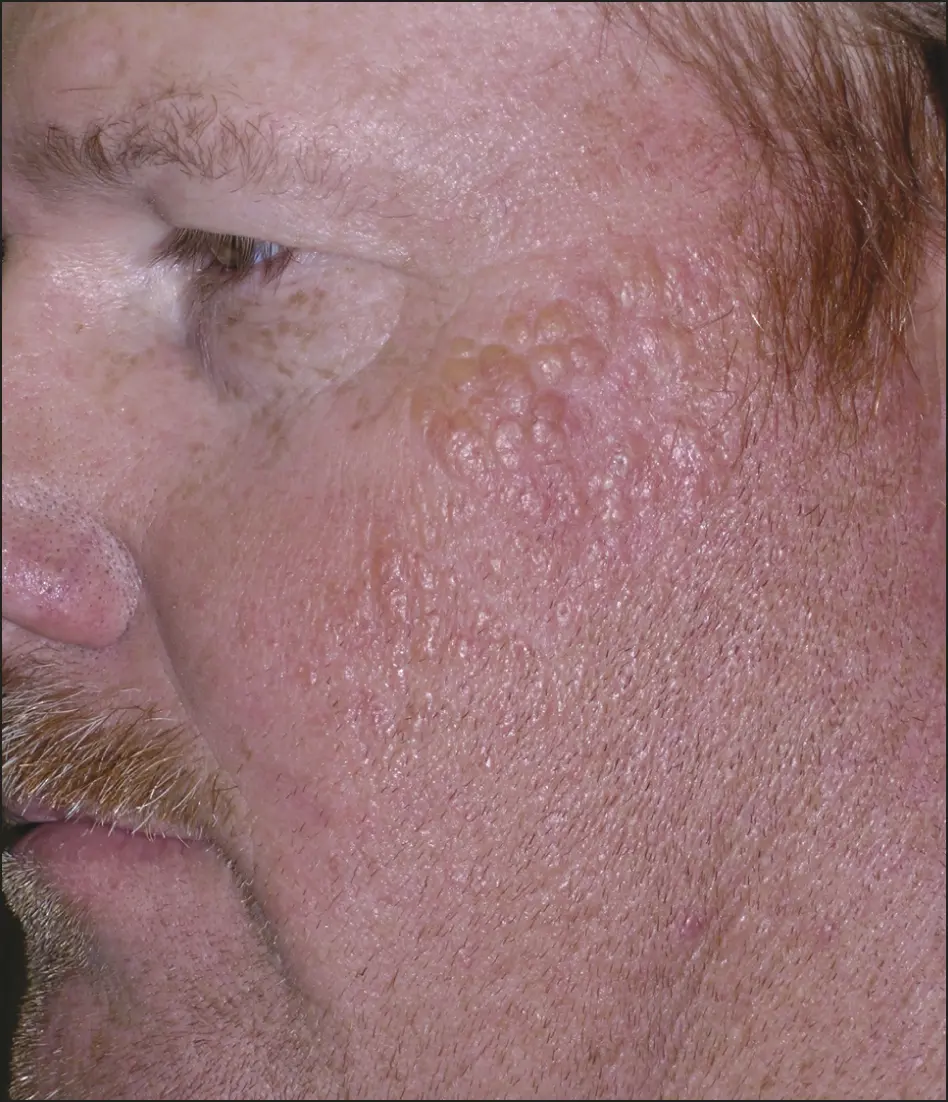Can Amyloidosis be Cured?
No
Treatment aims to manage symptoms and prevent further organ damage

What is Amyloidosis?
Amyloidosis is a group of rare diseases characterized by the buildup of abnormal protein deposits (amyloids) in tissues and organs throughout the body. Depending on the organs affected, symptoms can vary. Treatment may involve addressing the underlying cause, managing symptoms, and sometimes stem cell transplantation.

Clinical Aspects

Characteristics
Accumulation of abnormal proteins (amyloids) in organs

Symptoms
Fatigue, organ dysfunction, weight loss

Diagnosis
Imaging studies, biopsy

Prognosis
Variable; depends on the specific type and organs involved

Complications
Organ dysfunction, impaired quality of life
Etiology and Treatment

Causes
Genetic mutations, multiple myeloma, chronic inflammation

Treatments
Chemotherapy, stem cell transplant, supportive care

Prevention
Chemotherapy, stem cell transplant, supportive care
Public Health and Patient Perspectives

Epidemiology
Can affect multiple organs; various forms with different causes

Patient Perspectives
Lifelong management and monitoring are necessary
As always, consult with healthcare professionals for personalized advice and care.
Share: